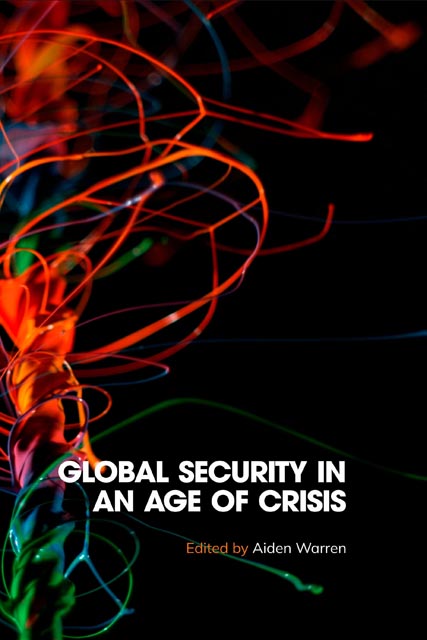6 - Postcolonialism and Security: Fractured Empires
Published online by Cambridge University Press: 14 July 2023
Summary
Introduction
That we are in an era of compounding crises with the most serious global security implications is an established fact. Less clear is how to make sense of those multiple crises, and the extent to which such complex challenges can be treated as discrete issues or are better understood as wicked problems: interconnected, complex, and demanding diverse multilateral responses. This chapter, like others in this volume taking a critical perspective on security studies, argues for the latter perspective. It is primarily concerned with demonstrating how postcolonial perspectives on contemporary security shift the understanding of security challenges from a focus on “great power politics” to a decentered and subaltern view. Like other critically informed perspectives on security, this argument reflects on the ethical dimensions and purposes of understanding security and acting on those understandings, in this instance for a decolonial security studies practice. Finally, the chapter makes the argument that security studies critically informed by postcolonialism offers a far more clear-eyed perspective on the complexities of a multipolar world in the pandemic age; a view free from nostalgic illusions about the “liberal international order,” which is the era of Western domination of world affairs.
As the chapters by Reuben Steff and Adam Bartley in this volume have shown, conventional security studies takes the state as a normative point of reference. Realist and other dominant approaches to security studies think in terms of strong states, and weak and dysfunctional or “failed states,” but the high-functioning strong state is rarely considered as a security problem unless it enters into great power rivalry or the much-cited Thucydides trap. While the domestic order of the state is presumed to be lawful and orderly, conflicts between states in the “anarchic” sphere of international relations are the central security concern, so-called “great power” conflict in particular. This chapter adopts insights and methods from postcolonial studies to interrogate the global security challenges and risks presented by states generally considered stable and secure, particularly Western liberal democratic states. It examines the sources of global insecurity created externally by settler-colonial states with belligerent expansionist reflexes. Additionally, it uses the Australian involvement in the American war of occupation in Afghanistan as a detailed case study.
Postcolonialism
At its simplest, “postcolonialism” is a critical perspective on the world from the margins of global power.
- Type
- Chapter
- Information
- Global Security in an Age of Crisis , pp. 130 - 151Publisher: Edinburgh University PressPrint publication year: 2023



